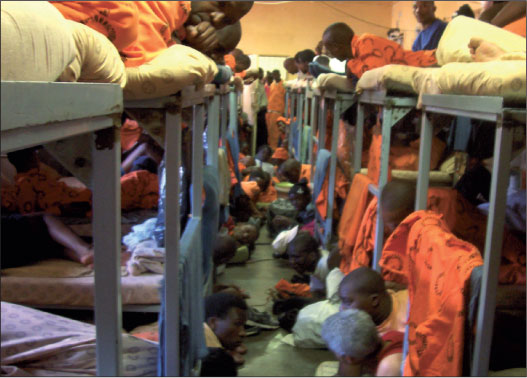The Fifth Workshop on Prison Infrastructure in Africa (WPIA) commenced on Monday in Windhoek, bringing together prison administrators from across the continent to address critical challenges facing correctional facilities.
The workshop, running from 9 to 13 June at the Hilton Garden Hotel, aims to share best practices and develop innovative solutions for enhancing prison facilities and operational effectiveness.
Officiating the opening, Minister of Home Affairs, Immigration, Safety and Security, Lucia Iipumbu, , highlighted the pervasive issues.
“It is no secret that the majority of prisons and correctional facilities in Africa were constructed to serve the needs of colonial ideology, which was custody-oriented and not suitable for rehabilitation,” Iipumbu said.
She further emphasized that these facilities are “old and dilapidated, making them unsafe and inhumane to accommodate inmates.”
Iipumbu pointed out that this challenge is “aggravated by the rapidly growing inmate population observed in many parts of the world, which leads to severe overcrowding, thereby hampering rehabilitation efforts and compromising the safety and well-being of inmates.” She stressed that substantial infrastructural reforms are required to overcome these inherited limitations and align facilities with contemporary rehabilitation and reintegration standards.
Iipumbu acknowledged the complexity of addressing these issues amidst competing priorities and constrained budgetary resources. However, she affirmed that the shift from a punitive to a rehabilitative approach “remains essential” for humane custodial treatment and positive change in inmates’ lives.
The Namibian Correctional Service, she noted, has been steadily progressing since 2010 towards becoming a modern provider of correctional services. This includes embracing the Offender Risk Management Correctional Strategy and enacting the Correctional Service Act of 2012. These efforts are evident in construction and conversion projects at facilities such as the Evaristus Shikongo, Windhoek, and Hardap Correctional Facilities, with more planned under the Capital Projects Master Plan.
Iipumbu highlighted that this rehabilitative shift is a broader regional trend. She emphasized the necessity of collaborative efforts among public justice partners and diverse stakeholders to explore innovative solutions, share best practices, and optimize limited resources.
She specifically acknowledged the “vital role played by the International Committee of the Red Cross in leading and fostering the transformation of African prison systems,” thanking them for identifying Namibia as the host, which means Namibia “stands to benefit the most from this important workshop.”
Iipumbu expressed confidence that the workshop would facilitate the exchange of valuable insights, identification of innovative solutions, and strengthening of genuine collaborations to advance the quality and efficiency of correctional facilities across Africa. She officially declared the Workshop on Prison Infrastructure in Africa open.
Provided by SyndiGate Media Inc. (
Syndigate.info
).







